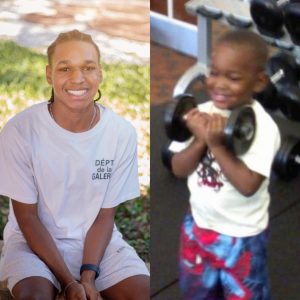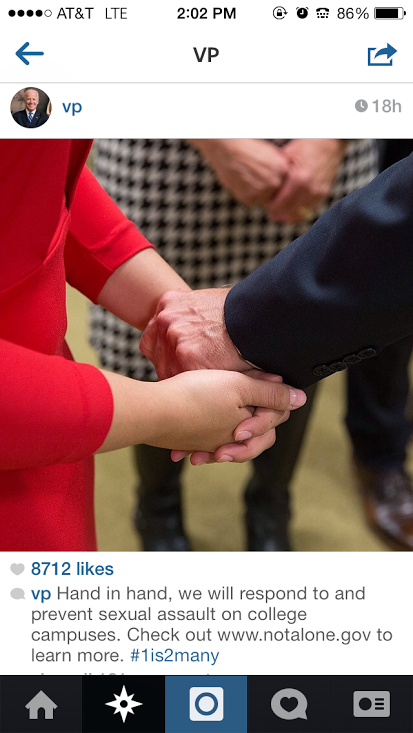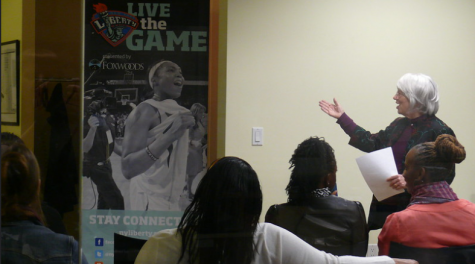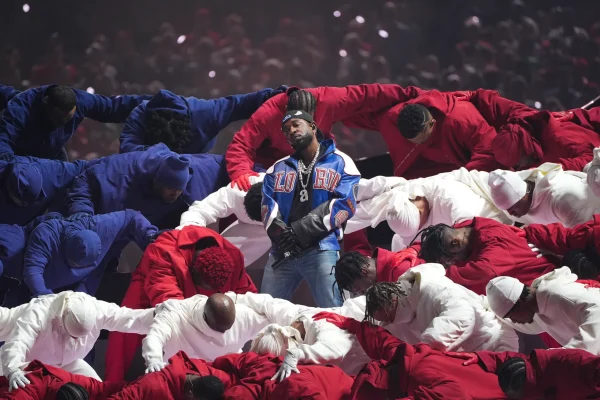Victims gone unnoticed: Addressing college rape culture
Rape is difficult to talk about. The word itself induces a reflexive cringe. The topic is becoming so difficult to address, in fact, that some have decided to look the other way. As if pretending it never happened could erase the tragedy entirely. As if turning a blind eye to such a horrifically frequent occurrence could eradicate the victim’s suffering.
The worst cases of this harmful ignorance can be seen in one of our nation’s largest institutions – college.
For many of us, our college years are fast approaching and honestly, a little terrifying. We fear not getting into the college of our dreams, we fear obnoxious roommates and we fear boring professors. However, the lack of protection and justice for sexual assault victims is something students do not usually consider – but should become increasingly concerned about.
One in five women have reported experiencing sexual assault during their college years. Sixty-two percent of these assaults were drug facilitated.
More and more cases are being exposed in which the police did not follow standard investigatory procedure and the college did the absolute minimum, or worse, nothing.
On Dec. 7 2012, a freshman girl at Florida State University reported that a member of the football team* had raped her. There was ample evidence proving her trauma, including multiple bruises and semen on her underwear.
Three weeks after this athlete was identified as her rapist, the case blew over as if nothing had happened. There was virtually no investigation done by the police or by the university. They did not obtain the video a passerby took of the assault, and the rapist was not interviewed until two weeks after, in which they failed to ask him for a DNA sample. The case was then dismissed when he refused to answer any questions, causing the college to claim that they, according to the victim’s attorney Baine Kerr, “could not make any Title IX** findings.”
Abuses of process like this have been popping up everywhere. At the University of California at Berkeley, several women filed complaints of the same man abusing them, and these reports were never followed up. At Indiana University, a freshman convinced the school panel that another student had raped her, and while they believed her, all they did was suspend him for the summer semester in which he was not planning on taking classes during anyway. The list of injustices is endless.
In many cases, the report is not investigated because the victim is intoxicated. However, consent under the influence of alcohol is not consent at all – a California law even states that rape is officially committed when “a person is prevented from resisting (sex) by any intoxicating, narcotic or anesthetic substance . . .” Rape is a serious offense, and forcing sex upon someone who is too inebriated to give legal consent is still considered Criminal Sexual Conduct in the Third Degree.
In saying this, the significant problem of ignoring assault stems from an even more extensive idea – the idea of rape culture in America. There are too many cases where the victim is blamed for the crime taken against him or her, and this ideology can lead to situations that are not executed correctly. Onlookers tend to hold victims of any crime responsible because it makes them feel less vulnerable. To comfort their worries, people like to think that the victim did something wrong and that if they had been in a similar situation, they could have prevented said crime.
However, that is rarely true. Thinking that the victims deserve what has happened to them creates an extremely negative view towards their sufferings. This, in turn, makes the crime even worse because not only do they have to deal with their trauma, but they also have to suffer through the cruel way they are treated by others and the legal system.
By failing to sympathize with the victims of these vicious attacks, we as a society are unintentionally encouraging the aggressor and dehumanizing the innocent. Instead of accusing the victims of some wrongdoing, we as a society must teach these perpetrators to respect the lives of the humans around them.
Considering it is much more difficult to change the mindset of an entire nation, maybe we should start a bit smaller. We should start where our young adults go to learn the inner workings of our world – college.
Some colleges have overcome this unrelenting stigma. Texas State Technical College in Harlingen, Texas began by handing out over 5,000 drug testing coasters right before spring break. The partier simply needed to place a drop of his or her beverage on the designated area and any change of color indicated that the drink had been drugged. While efforts like this are seen mainly in smaller institutions, it is a good start to ending a huge problem.
College is intended to be educational, exploratory and fun. It is supposed to encourage new experiences and create lasting memories. If this dangerous atmosphere persists, if students are constantly living in fear of harassment, the college experience will forever be changed.
Rape is not a victimless crime. It seems as though that should go without saying, but people see these statistics and news stories, and the possibility of such a tragedy just seems so distant. We do not think that rape will ever happen to us, but so many of us are continuing onto college very soon and the chance is ever present.
The goal is not to monger fear. The point is to increase awareness and in doing so, we can raise the standards for how colleges handle these situations. By raising our expectations on how the reports should be dealt with and by knowing that this abominable phenomenon is going on all around us, hopefully we can decrease the amount of sexual violence and improve investigation towards such cases.
We must refuse to ignore the crime. We must acknowledge that these trespasses of trust are occurring, and we must strive to eradicate them completely.
*For details about the case, check out the New York Times report below:
**Title IX is a gender equality law which mandates that educational institutions must adequately and promptly respond to any and all sexual violence reports.
UPDATE: On Monday, the Obama administration produced a 20-page report outlining the duties of a new task force created to protect college students from sexual assault. Learn more about it here: http://www.cnn.com/2014/04/29/living/campus-sexual-violence-report/
Your donation will support the student journalists of Plano Senior High School. Your contribution will allow us to purchase equipment and cover our annual website hosting costs.

Senior Torie Brannen is entering her second year on the Wildcat Tales staff, this year serving as Print Editor-in-Chief.




















